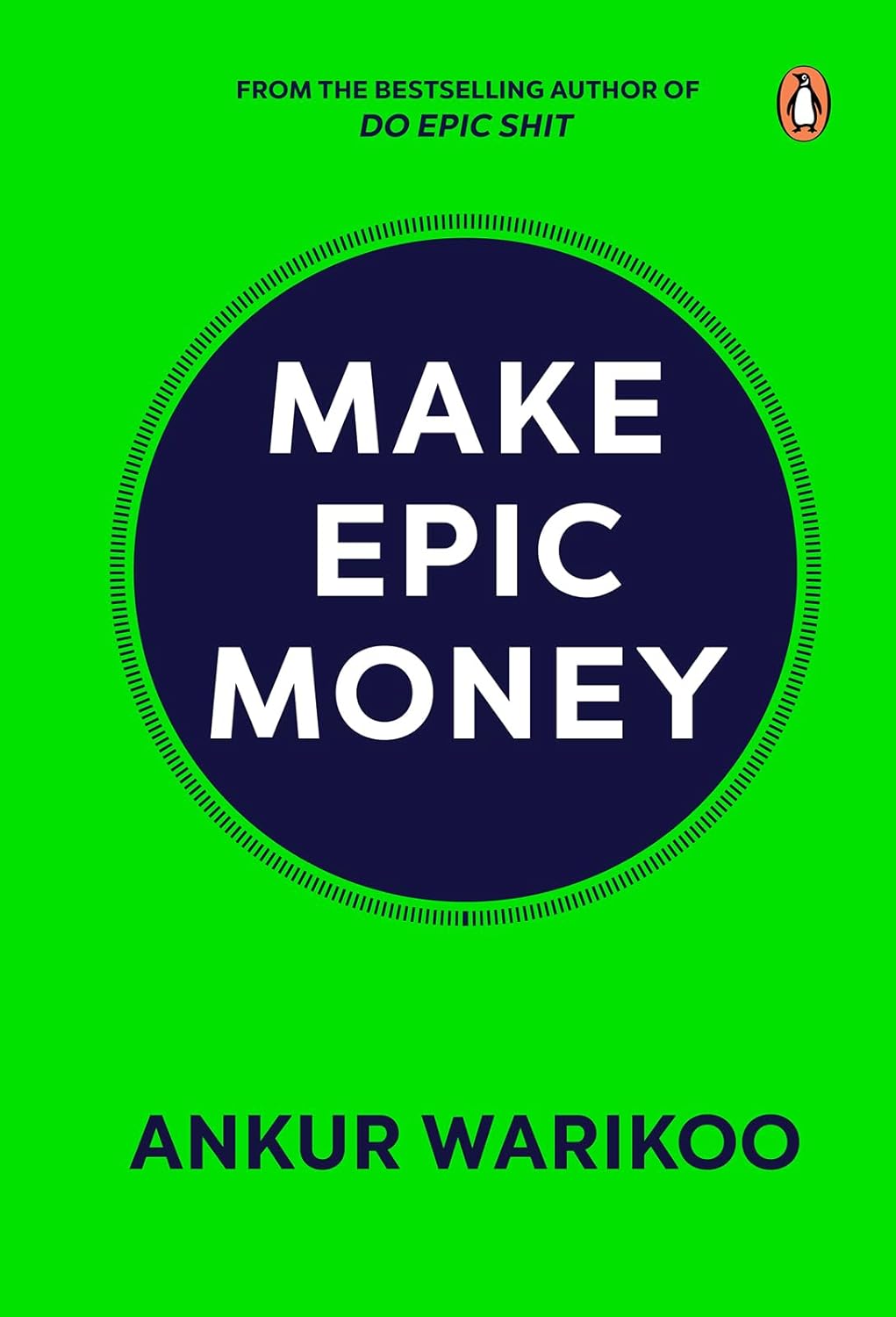Blurb:
In his groundbreaking book Do Epic Shit, Warikoo dropped this truth ‘Three relationships determine our life’s course - time, money, and ourselves.’Now, in his third book, Make Epic Money, he dives deep into the complex world of money to provide you with the ultimate personal-finance blueprint. Drawing on a lifetime of experience of financial highs and lows, he shares everything he has learnt about money that he wishes someone had taught him when he was young. Prepare to unlock the secrets to financial well-being with this no-nonsense guide. Say goodbye to confusing jargon and hello to practical advice. Discover how to earn, spend and make your money work just as hard for you as you do for it.
My Review:
Ankur Warikoo’s “Make Epic Money” talks about personal finance, aiming to simplify its complexities and provide readers with a guide to achieving financial stability and success.
The author’s writing style is simple and relatable. The chapter headings, designed to mimic natural conversations about money, add a conversational tone to the text, which I found quite interesting. His approachable language makes even the most intricate financial concepts understandable to a wide audience.
Drawing from his own experiences of triumphs and failures, the author delivers practical advice aimed at empowering individuals to take charge of their finances. The book discards financial jargon in favor of straightforward guidance, providing readers with actionable steps to earn, spend, and invest wisely.
This book is a convenient entry point into the world of financial literacy. The QR codes provide easy access to additional resources, adding a modern touch to the reading experience and enhancing its practicality. The section on financial planning by age and salary provides valuable considerations for readers at various stages of their financial journey. However, one can not blindly use the suggestions and must consider the other factors in one’s life.
Readers well-versed in popular finance literature may find some of the concepts like picking up side hustles, investing, buying insurance, 50-30-20 spending rule, etc., to be repetitive. It may not present entirely new ideas for those already familiar with similar works such as “Rich Dad Poor Dad” and “The Psychology of Money”.
Nevertheless, the book’s direct and simplistic approach makes it a worthwhile read for individuals looking to take the first and easy step toward financial literacy.

